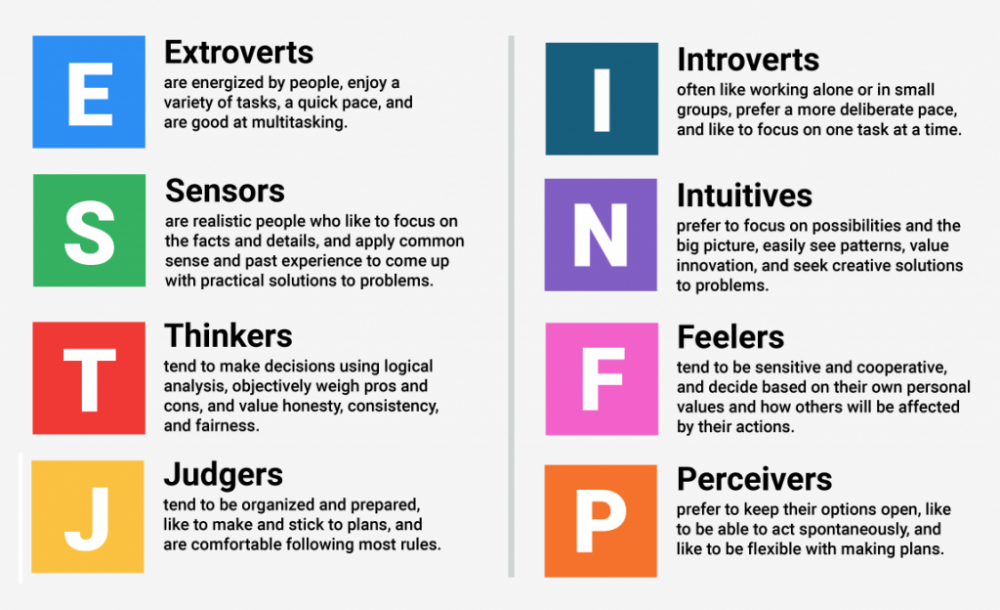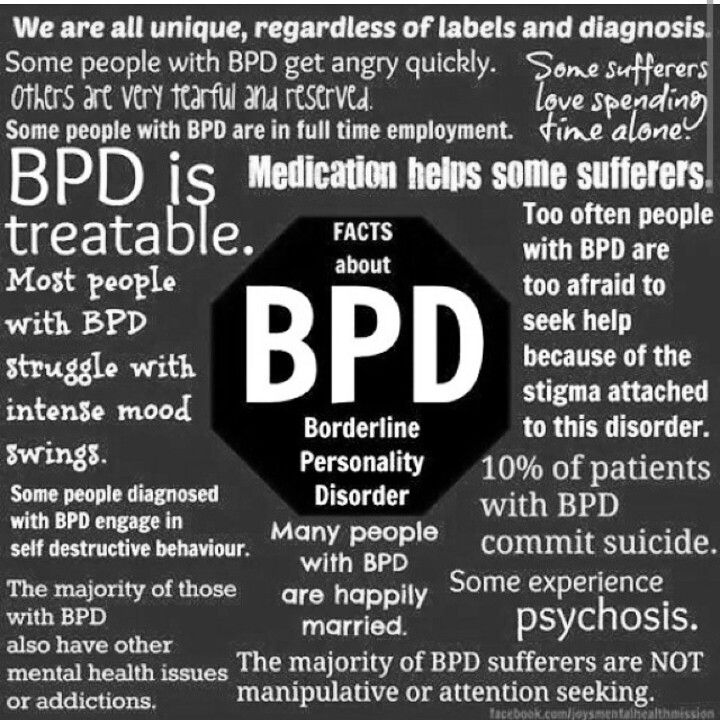What are the benefits of journaling
7 benefits of keeping a journal
What do Albert Einstein, Marie Curie, Frida Kahlo, Leonardo da Vinci, and Frederick Douglass all have in common? Each of these famous figures kept a journal or diary to record their experiences, thoughts, or feelings. Kahlo and da Vinci even used illustrations to express emotions and sketch out ideas.
How journaling can help you
From scientific geniuses to thoughtful artists — and everyone in between — keeping a journal can be a beneficial self-care practice. In fact, journaling can help you in the following ways.
Achieve goals
When you use your journal to write down your goals, you can keep better track of your intentions. This will help you stay accountable and serve as a reminder of what you need to do to accomplish them. Be sure to get specific.
Track progress and growth
If you make journaling a regular habit, you can see how much progress or growth you’ve made by revisiting previous entries.
Gain self-confidence
Seeing your progress can also give you a serious confidence boost. You can feel proud looking back at the challenges you faced and seeing how far you’ve come.
Improve writing and communication skills
Writing, like anything, improves with practice. When you journal every day, you’re practicing the art of writing. And if you use a journal to express your thoughts and ideas, it’ll help improve your overall communication skills.
Reduce stress and anxiety
Sometimes negative thoughts and emotions can run on a loop in our heads. This can be stressful when you’re dealing with a challenging situation — it can even make your present situation feel worse. But if you stop and put your emotions down on paper, it can help you release negative thoughts from your mind. As you write, you may even come up with a solution you hadn’t thought of before.
Find inspiration
Leonardo da Vinci drew some incredible invention ideas in his journals. Like him, you can also use your journaling time to brainstorm or let your imagination run wild. The inspiration that may pop up while you’re writing or sketching might even surprise you.
Like him, you can also use your journaling time to brainstorm or let your imagination run wild. The inspiration that may pop up while you’re writing or sketching might even surprise you.
Strengthen memory
The Journal of Experimental Psychology published research that shows how writing your thoughts down can reduce intrusive thoughts about negative events and improve working memory.* Even the simple act of writing something down lets your brain know you want to remember it. That’s why note-taking is such an effective practice when learning something new.
Explore the many different types of journaling
Ready to start but not sure how? Here are a few different types of journaling options to consider.
Stream of consciousness
Write down your thoughts as they happen. The words and thoughts don’t need to make sense, you’re simply capturing your thoughts in action.
Dream journal
Take note of your dreams each night as a way of getting in touch with your subconscious.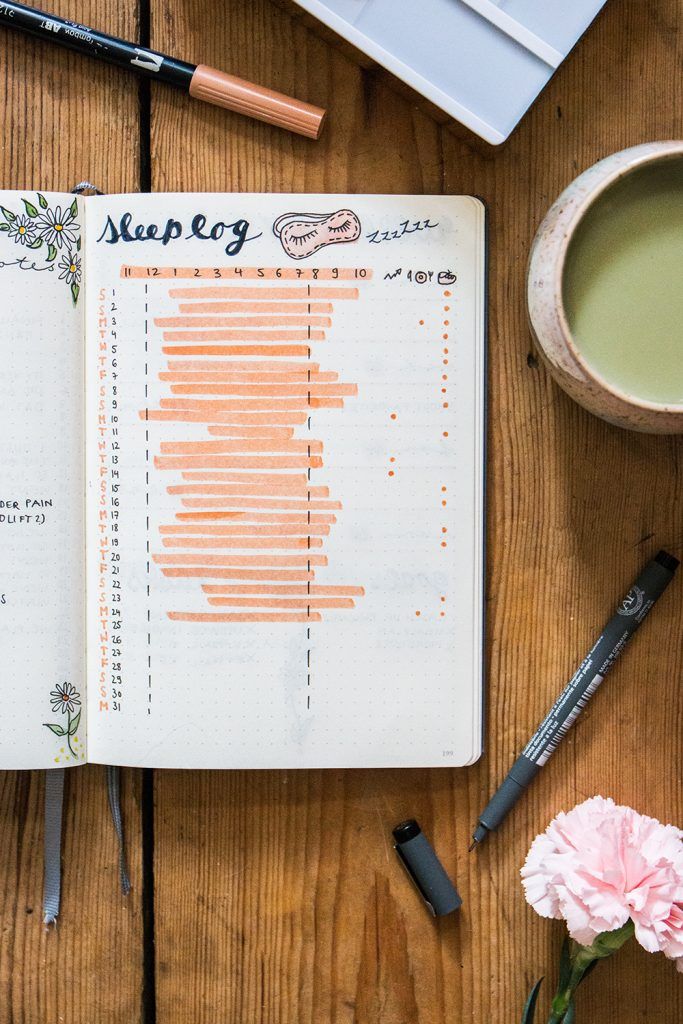 Remember to make your journal entries right when you wake up.
Remember to make your journal entries right when you wake up.
Food journal
Make a note of what you’ve eaten each day. This will help you be more mindful about the foods you choose to eat. If you’re struggling with a healthy weight-loss journey, documenting what you ate can offer insight into areas you may need to change.
Fitness journal
Keep track of your workouts so you can stay committed to an active lifestyle. The best part of keeping this type of journal is seeing the progress you made over time.
Gratitude journal
Before going to sleep, make a list of everything you were thankful for that day, week, or month.
Sketch journal
Express your feelings, thoughts, and ideas through illustrations, doodles, or sketches.
Day’s events journal
Keep track of your experiences throughout the day. Whether it’s making note of a funny conversation or describing a new recipe you enjoyed.
To-do list
Instead of keeping a running tally of to-do items in your head, write them down. You can cross things off as you complete them and get a great sense of accomplishment.
You can cross things off as you complete them and get a great sense of accomplishment.
No matter which type of journal you decide to keep, remember there is no right or wrong approach. It’s all up to you. The simple act of taking the time to get in touch with your mind, body, and spirit is what’s truly important.
Learn more
Mental health and wellness tools (services and free resources from Kaiser Permanente)
15 Benefits of Journaling and Tips for Getting Started
You may be surprised to learn that one of your best wellness tools is actually a journal. Journaling offers an array of benefits — from easing stress to sparking self-discovery.
“Journaling is mindfulness in motion,” says Lisann Valentin, a Shamanic life coach. It shines a spotlight on the invaluable things in your life that you might not always recognize.
Here are six other wide-ranging benefits of putting pen to paper — or fingers to keypad — along with how to start and actually sustain this helpful habit.
“Journaling can be a great pressure releasing valve when we feel overwhelmed or simply have a lot going on internally,” says Amy Hoyt, PhD, founder of Mending Trauma.
Some research bears this out. For example, in one study, patients, families, and healthcare practitioners from a children’s hospital reported a reduction in stress levels after completing this journaling exercise:
- write three things you’re grateful for
- write the story of your life in six words
- write three wishes you have
In a follow-up study 12 to 18 months later, 85 percent of the participants reported that the writing exercise was helpful. Fifty-nine percent continued using writing to cope with stress.
A 2018 research review suggests that writing about your deepest thoughts and feelings may contribute to:
- fewer stress-related doctor visits
- lower blood pressure
- improved mood
- greater well-being
In addition, a study of 70 adults with medical conditions and anxiety found that writing about positive experiences, like gratitude, for 12 weeks was linked to:
- reduced distress
- increased well-being
In the same study, after a month, participants reported fewer symptoms of depression and anxiety. After the first and second months, participants reported greater resilience.
After the first and second months, participants reported greater resilience.
When negative or worried thoughts arise, it’s easy to get caught up in their catastrophic stories. Jotting down your thoughts, however, “creates space and distance to consider them in a more objective way,” says Sabrina Romanoff, PsyD, a clinical psychologist in New York City.
This distance is formally called cognitive defusion, a helpful concept from acceptance and commitment therapy. “The idea is that you are not your thoughts, emotions, or physical symptoms; instead, you are the context in which they occur,” says Romanoff.
In other words, if your thoughts aren’t serving you, you don’t have to believe them. Instead, you can use journaling to see your thoughts as separate from you.
To further underscore this separation as you’re journaling, try adding this phrase: “I’m having the thought that…”
Plenty of people move about their days either not noticing their emotions or actively pushing them down. The problem? Your emotions have a way of still popping up to the surface and affecting your actions — with or without our awareness.
The problem? Your emotions have a way of still popping up to the surface and affecting your actions — with or without our awareness.
Journaling gives you the opportunity to process your emotions in a safe, contained space. Naming the specific emotions you’re experiencing and accepting them reduces their strength. That way, difficult emotions become less overwhelming and easier to manage.
Writing down your thoughts and feelings about a situation is the first step in understanding how best to proceed. Once you’ve calmed down a bit, you might find that your emotions are trying to tell you something:
Maybe your anger is a sign that you need to set a stronger boundary with someone. Or your sadness is nudging you to reach out and strengthen your connections.
Seeing your concerns, questions, and emotions in black and white gives you a clearer picture of your needs. Even a simple list of pros and cons can provide deeper insight into your desires — certainly more so than a jumble of thoughts knocking around in your head.
Think of yourself as a puzzle: You get to discover a different piece or pattern every single day. Journaling provides a much-needed pause to help us reconnect to ourselves and rediscover who we are. When we write, we learn our preferences, pain points, fears, favorites, and dreams.
We are constantly evolving. Journaling helps us to listen, bear witness to these changes, and simply get to know ourselves a whole lot better.
Find more tips to kick off your self-discovery journey.
Whether you’re completely new to journaling or returning after a long hiatus, try these tips for building a sustainable habit.
Take a micro-stepAt the start, try not to bite off more than you can chew. As Hoyt explains, “micro-steps are less likely to be rejected by the brain, whereas large sweeping changes can feel unsafe, and we may give up.”
She suggests setting a timer for just one or two minutes a day for your journaling session.
Pick the simplest tools
Since everyone is different, start with whatever method is easiest to incorporate into your routine, says Romanoff, like:
- writing in a blank doc on your laptop
- using a note-taking app on your phone
- putting pen to paper
Start by taking several deep breaths, noticing your immediate surroundings, and writing whatever comes to mind, says Lori L.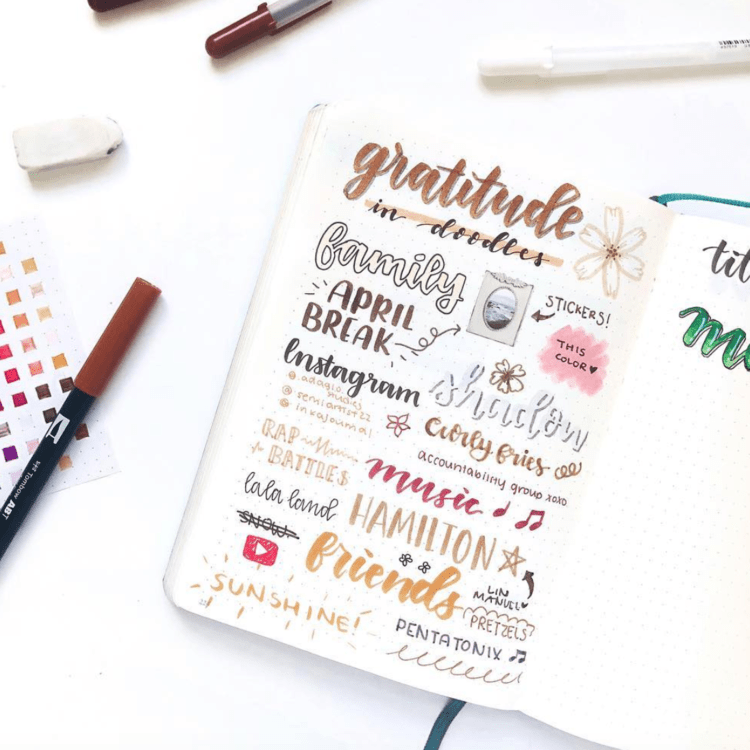 Cangilla, PhD, a Pittsburg-based psychologist, avid journal writer, and member of the International Association for Journal Writing.
Cangilla, PhD, a Pittsburg-based psychologist, avid journal writer, and member of the International Association for Journal Writing.
If you’ve drawn a blank, Cangilla notes, “describe that experience until something else comes forward in your journaling.”
Let it all outWrite whatever thoughts and feelings arise, without censoring yourself. “It’s your journal, so you can be as petty, blunt, and honest as you wish,” says Cangilla.
To resist the temptation to edit, try writing as fast as possible, she adds.
Anchor your journalingIf you like structure, journal at the same time every day. For example, says Valentin, write your thoughts when you first wake up or process the day before bedtime.
You can also anchor your journaling to a well-established habit to make it more likely you’ll stick with it. For example, journal:
- before or after a nightly prayer
- when you’re in the car rider line
- during a commercial break on TV
To sharpen your self-awareness, you can jot down your feelings around a specific situation, day to day. For example, you might simply write:
For example, you might simply write:
- This is what happened today.
- I’m experiencing these feelings about it.
- I’m thinking these thoughts.
Avoid re-reading painful entries
Cangilla advises against revisiting the raw details of difficult situations. If you feel you aren’t done with a situation, she says, you can refocus on:
- what you’re grateful for in the situation
- how you’ll apply what you’ve learned from it
Explore a prompt
Prompts are a powerful way to get to know yourself better. They’re also great when you aren’t sure what to journal about.
Try these ideas from Lori Ryland, PhD, LP, a psychologist and chief clinical officer at Pinnacle Treatment Centers:
- Write your favorite memories from childhood or your children’s lives.
- Go out into nature, and write about the experience.
- Describe something you fear doing and why.
- Describe something you love doing and why.
- Describe yourself, including your personality and roles at work and home.
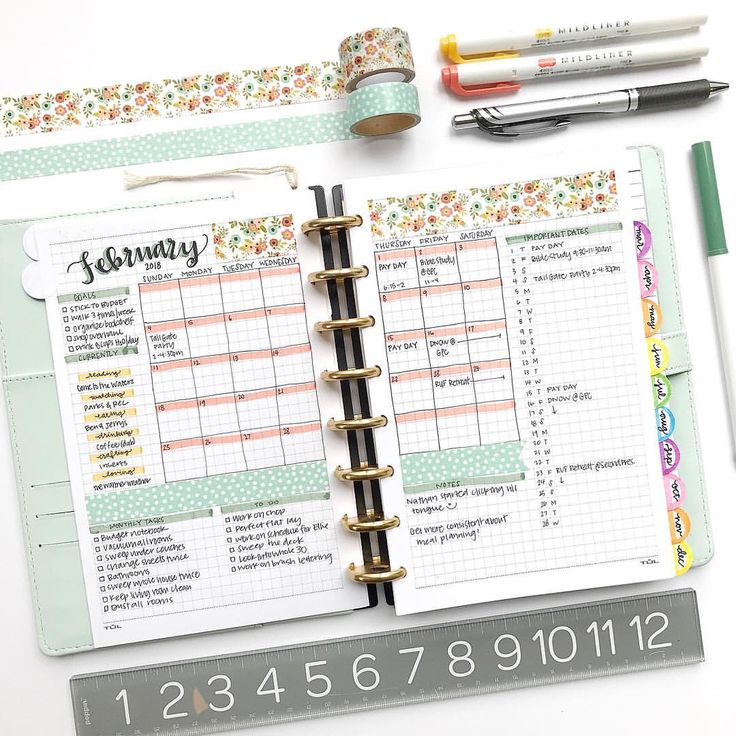 Then describe yourself from the perspective of a close friend or family member.
Then describe yourself from the perspective of a close friend or family member. - If you wake up tomorrow having everything you want, what does this look like? Where are you? Who are you with? What are you doing with your time?
If you’re journaling about a disagreement, try writing with empathy. Consider the other person’s perspective and motives behind some of their actions, says Romanoff.
Putting yourself in their shoes may help you gain clarity on the situation, reduce resentment, and possibly even find a solution.
Journaling has a range of benefits. Just writing a few minutes a day may help you reduce stress, boost your well-being, and better understand your needs.
Journaling provides a concrete method for learning who we are and identifying what we need.
To create a lasting journaling habit, start with several minutes — or more, depending on your preference. In your journal, you can explore something that’s bothering you, write about the present moment, or play with a prompt..jpg)
Ultimately, the wonderful thing is that it’s totally, completely up to you.
Margarita Tartakovsky, MS, has been writing for Psych Central and other websites for more than a decade on a wide range of topics. She’s the author of the mental health journal “Vibe Check: Be Your Best You” (Sterling Teen). She’s especially passionate about helping readers feel less alone and overwhelmed and more empowered. You can connect with Margarita on LinkedIn, or check out her writing at her website.
Keeping a personal diary is good for your health! What?? Yes! Here's how to do it right
Psychology
Feeling better, reducing symptoms of depression, anxiety, anger, shame and anxiety - keeping a diary can become a very useful habit. About why negative emotions should be recorded in it in the first place, says psychologist and Ph.D. Glenn Shiraldi in the book “Self-Esteem. A Practical Guide to Developing Self-Confidence.
From time to time, all people, without exception, experience suffering. Most of us have painful childhood and adult memories in our hearts. Dr. James Pennebaker, professor of psychology at the University of Texas at Austin, has long been conducting research to study the effect that documenting difficult life events and emotional upheavals, including psychological trauma, has on an individual. So, in his opinion, ignoring or holding back strong negative emotions harms a person, but writing them down is extremely useful.
Most of us have painful childhood and adult memories in our hearts. Dr. James Pennebaker, professor of psychology at the University of Texas at Austin, has long been conducting research to study the effect that documenting difficult life events and emotional upheavals, including psychological trauma, has on an individual. So, in his opinion, ignoring or holding back strong negative emotions harms a person, but writing them down is extremely useful.
As part of the research, the professor asked different groups of people: victims of the Holocaust; combat veterans; people whose spouses committed suicide or died in a car accident; survivors of natural disasters; survivors of a difficult divorce, alcoholism or dismissal; college students and others, to describe the most difficult periods in their lives. Participants were required to write for 20 minutes each day for four days, pouring out their innermost thoughts and feelings about their negative experiences.
Since the 1980s, more than 300 studies have been conducted to support Dr. Pennebaker's opinion. People who kept a diary slept better and were less sick.
Pennebaker's opinion. People who kept a diary slept better and were less sick.
This activity made me feel better, more happy, and reduced symptoms of depression, anxiety, anger, shame, and anxiety. Keeping a diary of negative emotions even improves intelligence and improves performance.
Everyone knows that trying to get rid of painful memories takes a lot of effort, but the pain remains. Paradoxically, it is a respectful attitude and attention that helps to reduce it and, accordingly, even overcome it. By writing down our experiences in a safe environment and at a comfortable pace, we seem to slow down the rhythm of life. In this way, we establish contact with all parts of our "I", showing respect for him even in difficult times. It helps us better understand ourselves and our struggles, and with self-compassion, heal psychological trauma and regain a sense of fulfillment.
By being respectful of what is bothering you, you will see more clearly that self-respect is both within and beyond pain. By boldly looking into her eyes, instead of trying to avoid, you will:
By boldly looking into her eyes, instead of trying to avoid, you will:
- be relieved that you no longer have to keep secrets;
- realize your strengths, thanks to which you survived difficult times and protected yourself or another person from even more harm;
- you will gain psychological stability and confidence that you are able to cope with any present, because you have already gone through a lot;
- find different ways of interpreting the traumatic event and accepting it with more calmness;
- learn to respond with self-compassion rather than judgment and self-criticism;
- believe in your worth, gain faith in your true self and your hopes for the future;
- feel gratitude for what you have left after the storm, such as friends, abilities, feelings, food, education, opportunities, beauty, and so on;
- redirect your attention to more positive aspects of life;
- you will begin to grow above yourself and bring new meaning to your life.

Who benefits from journaling
Journaling benefits all people, regardless of gender or nationality, because studies show that keeping a secret about trauma can lead to physical and mental health problems. According to experts, this is especially beneficial for men, as well as for those who are gripped by anger and unable to get in touch with emotions.
It is helpful to write down any traumas and hardships in a diary, but especially those unexpected and unwanted events that are difficult to talk about. If you are still worried and worried about the past, you often think about it, spending a lot of energy on it in the hope of getting it out of your head, then you should also definitely try keeping a diary. And certainly this lesson will bring the greatest benefit to those who want to trust people, but do not dare.
What rules will help to keep a diary
- It is recommended to come up with a kind of ritual - write in the diary at the same time every day and reflect on what is written.
 It is ideal to do this, say, on the weekend, while on vacation or at the end of the day. Choose a safe and comfortable place for this activity, such as your own room, library, coffee shop, or park. However, it is far better to write under less than ideal conditions than not to write at all.
It is ideal to do this, say, on the weekend, while on vacation or at the end of the day. Choose a safe and comfortable place for this activity, such as your own room, library, coffee shop, or park. However, it is far better to write under less than ideal conditions than not to write at all. - Do not write until you feel ready to do so. In all likelihood, before throwing out experiences on paper, it is worth waiting one or two weeks to calm down and come to a state of peace of mind.
- Naturally, when describing painful experiences, your mood will deteriorate. . Do not worry: such feelings will last for several minutes, sometimes several hours, rarely a day or two. You may experience sadness, like watching a sad movie. Some people cry when they make diary entries, others dream about how good it would be if this did not happen. Subsequently, however, most of them feel relief and satisfaction, and for a long time, sometimes up to six months. And, as a rule, they report that they understand their past better and it doesn’t hurt them to remember it anymore.

- If journaling only aggravates your wounds, write on a different topic first, or stop doing it altogether. If after four days you do not feel relief, seek the help of a psychologist. However, Dr. Pennebaker notes that among the thousands of participants in his study, no one lost control of the situation. Only three people turned to a specialist, and all three wanted to continue participating in the study later.
- After each writing session, pay attention to how fully you expressed your emotions and thoughts and how you feel now. Appreciate the benefits of this session. For four days, notice if your mood or understanding of the situation has changed after this session.
- The exercise described below has stood the test of time. Do it for four days, interrupting the reading of the book for this time. Later, you can try the additional approaches described below.
Four days to make the ritual a habit
- Find a quiet place where no one will disturb you for at least 20 minutes.
 Let it be a neutral place, such as a table in the corner of the room.
Let it be a neutral place, such as a table in the corner of the room. - For 20 minutes, write continuously about what worries you the most: what makes you wake up at night and you can’t get it out of your head, what you are trying with all your might to get rid of. Ideally, it should be something that you have never discussed in detail with other people. And don't worry about bugs.
- Describe the event clearly. What happened before it, and what happened during and after? Who were its main characters? What did they do and how do you think they felt, what did they think? What did you do, think and feel? How did this experience affect you? How did he influence other people? Discuss with your diary your innermost thoughts, especially the deepest feelings associated with this experience. Write sincerely and from the bottom of your heart, do not try to appear detached. Name all feelings honestly and accept them. Remind yourself that whatever you feel is natural. Analyze how this event is related to your childhood; relationships with family, friends, loved ones and other people important to you; with your job and place in life.
 You can try to connect this event with who you were in the past, who you are now and who you want to become. Has this event changed how people feel about you? What about your attitude towards yourself? Think well. In four days, many of these important aspects will become much clearer to you.
You can try to connect this event with who you were in the past, who you are now and who you want to become. Has this event changed how people feel about you? What about your attitude towards yourself? Think well. In four days, many of these important aspects will become much clearer to you. - You can write about the same event all four days. According to many experts, during this time our understanding of the events experienced deepens and a sense of completeness arises. But if at some point you jump to another topic, know that this is completely normal. Psychological trauma often affects other areas of life, for example, leads to problems in marriage. If the topic raised touches you emotionally, trust your pen. But if you notice that you are writing about something trivial and irrelevant, return to the difficult event. And if you get tired of writing about it or it seems that you have completely survived this painful experience, switch to what worries and worries you. Consider any experience that you have so far carefully avoided.

- What you write is for your eyes only - remember that. If you're worried about anyone reading your posts, you probably won't be completely honest. If you are afraid that someone will see what you have written, hide the diary or destroy it.
- Try to write all four days in a row. You can, of course, skip days, but the sooner you complete the exercise, the sooner you will feel relief. If necessary, take a different approach—for example, write once a week for four weeks.
- Write at least 20 minutes a day for four days. If the notes raise other important questions to think about, keep it longer.
- If you're writing every day and find that the story is always about the same thing with slight variations and writing doesn't bring much relief, it's time to take a break, or at least stop writing about it.
- If the memory of an event makes you feel too negative, don't force yourself. Approach it gradually, try writing about something else, or stop working with a diary for a while.

- If bitter memories make you sleepless, try writing before you go to bed. Writing is a helpful way to accept and acknowledge anxiety, rather than fighting it by trying your best to put the bad memories out of your mind.
- Take out the diary every time you feel the need to put your thoughts on paper, for a long or short time as you wish. Studies show that both a few minutes and half an hour of writing are beneficial.
Excerpt provided for publication by the MIF publishing house.
Follow our news on Telegram
Author:
Katerina Reznikova,
Why keeping a diary is good for your health
April 2, 2016Inspiration
Keeping a diary can significantly improve your well-being: sleep and pressure normalize, the immune system begins to function better, even wounds heal faster. And if you have long wanted to start a personal diary, but did not know where to start, in this article you will find 8 useful recommendations.
And if you have long wanted to start a personal diary, but did not know where to start, in this article you will find 8 useful recommendations.
Share
0Michael Grothaus
Writer, freelance journalist. Founder and CEO of SITU Scale.
I have been keeping a personal diary for many years. Twelve, to be exact. When I tell people that I keep a diary, some people start to think that these are some notes related to work. Others imagine a teenage version in the spirit: “Dear diary! Now I feel…” And that’s it.
When I first started to keep a diary, the first page was a real torment. But today, journaling is one of my favorite parts of my day: writing down my thoughts makes me feel better both physically and mentally.
Surprisingly, improving your well-being by keeping a diary is not just psychosomatic. This work really improves the health of those involved in it. According to Dr. James Pennebaker, a psychologist and a leading expert in expressive writing, journaling strengthens immune cells, the T-lymphocytes. Thanks to this, mood improves, social activity increases. It also has a beneficial effect on the quality of close relationships.
Thanks to this, mood improves, social activity increases. It also has a beneficial effect on the quality of close relationships.
Most of the research on expressive writing is done with measures of physical health to track changes. As a result of numerous scientific experiments, it became known that thanks to keeping a diary, the immune system begins to function better, blood pressure normalizes, sleep improves, and stress decreases. After a few months of keeping a diary, people begin to visit doctors less frequently. In other studies, this activity has been found to promote faster wound healing and greater mobility among people with arthritis. And this list goes on.
So what is journaling? It is a combination of fact-based personal reporting with an exploration of one's inner experiences, sometimes irrational, but always important.
giphy.com There are weeks when I write every day, and sometimes I don't write a single word for a whole month. The point of keeping a diary is not only to organize your thoughts, but you can just think them over carefully, and this will also bring certain benefits. When keeping a diary, it is the act of writing down thoughts that brings the greatest result.
When keeping a diary, it is the act of writing down thoughts that brings the greatest result.
When you take notes, the left, rational hemisphere of your brain is at work. While it is busy, the right hemisphere can do what it does best: create, anticipate, and feel. Keeping a diary removes all psychological blocks and allows you to use all the possibilities of our brain to better understand ourselves and the world around us.
Maud Purcell
psychotherapist, writing expert
Already intrigued? I think yes. But maybe you're like me 12 years ago when I didn't know where to start. Therefore, I offer the following 8 tips that will help you master the art of journaling in the shortest possible time.
1. Use pen and paper
The modern world is all about keyboards and touch screens. But when it comes to journaling, there are more advantages to a regular pen and paper.
I have noticed that most of my patients intuitively understand that writing thoughts by hand is more effective than using the keyboard.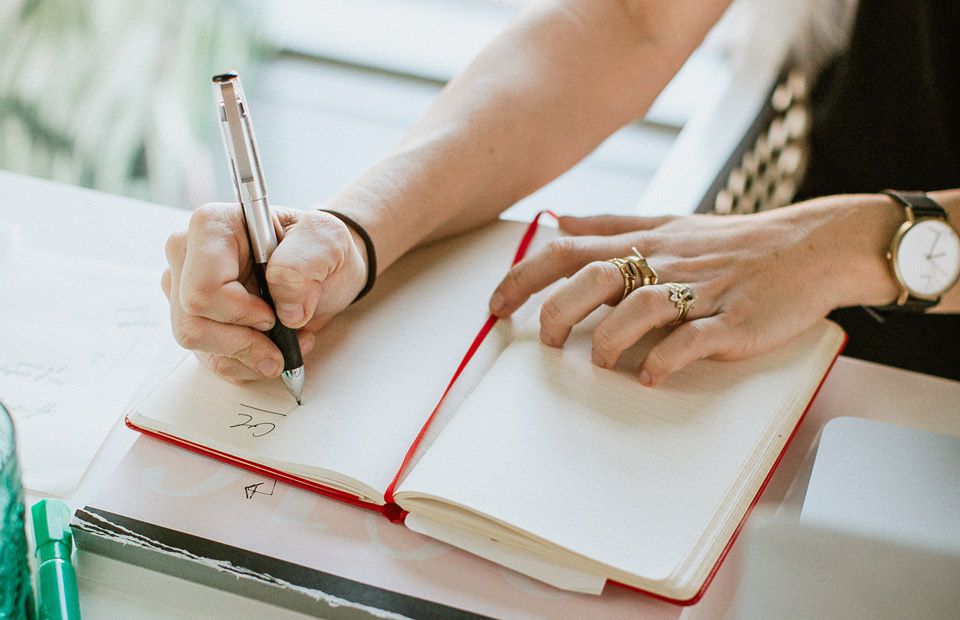 And research confirms this. It turns out that while writing, the reticular activating system is stimulated - that area of the brain that filters and brings to the fore the information on which we focus.
And research confirms this. It turns out that while writing, the reticular activating system is stimulated - that area of the brain that filters and brings to the fore the information on which we focus.
Maud Purcell
Handwriting has additional benefits. This keeps us from editing our own thoughts. Although many people in their 20s and 30s have already lost the muscle memory of handwriting and this activity may seem slow and uncomfortable to you, it will not be long before you again feel comfortable writing by hand.
When I can convince young people, especially 20 year olds, to take good old cursive notes, they are always amazed at the result, because this activity is really calming and helps to cope with problems.
Mod Purcell
2. If you don't like writing with a pen, find the right tool for you. There is nothing wrong with that.
Fortunately, today there is a huge variety of options. Personally, I prefer freehand journaling using a V5 Hi-Techpoint pen with a very thin refill.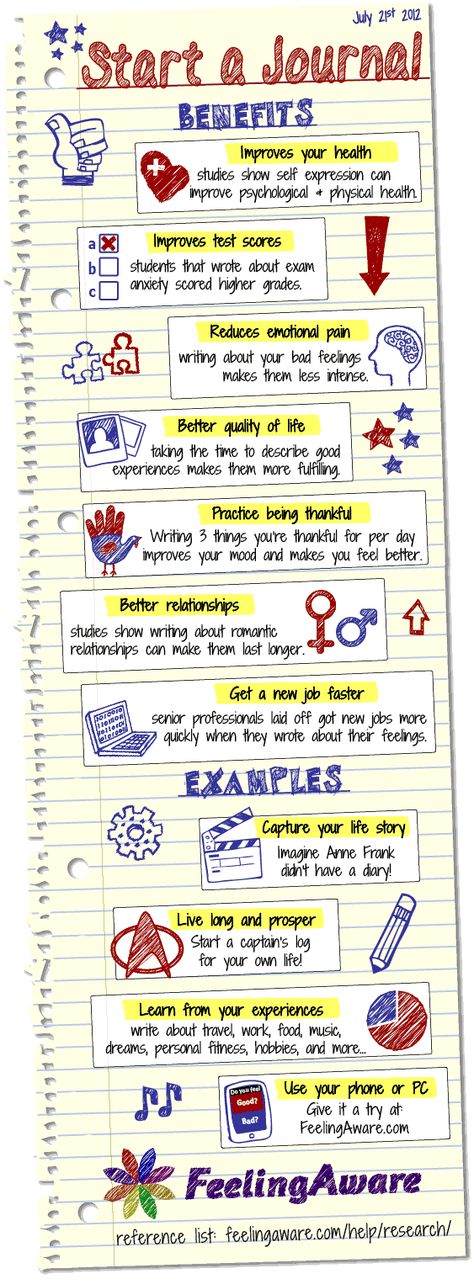 Yes, only this particular option. I think it's the perfect tool to help my thoughts flow from my head to the pages of my Moleskine notebook.
Yes, only this particular option. I think it's the perfect tool to help my thoughts flow from my head to the pages of my Moleskine notebook.
But if paper and pen are not for you, look to their technological counterparts. Both standard editors (Word from Microsoft or Pages from Apple) and more minimalistic solutions like Ommwriter will do. Perhaps you prefer touch screens. In general, look for the most convenient solution for yourself.
3. Set a reasonable limit for yourself
giphy.comPeople used to set a limit on how much they could write, like 3 pages every day. But experts agree that a time limit would be a more effective solution when keeping a diary.
Think rationally about how much time per day you can devote to this activity in your busy schedule. Even if it's only 5 minutes at first.
The time limit helps people focus on a specific goal when they start journaling. Seeing 3 blank pages in front of you can be difficult, and the case will end before it even starts.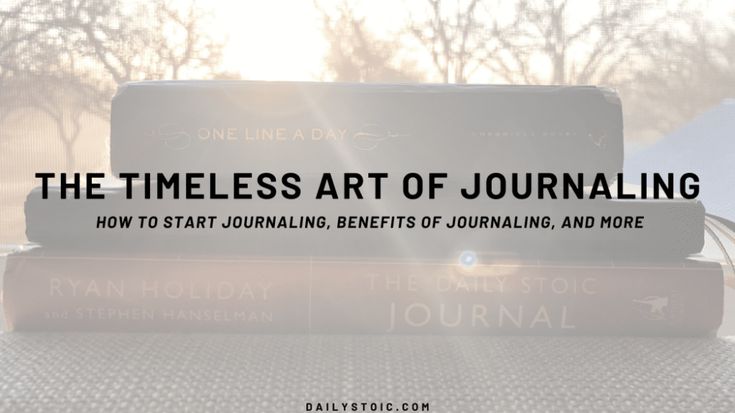 And the time limit will not seem like a difficult test.
And the time limit will not seem like a difficult test.
Pennebaker recommends writing 15 to 20 minutes a day. The only rule is to do it all the time.
4. You don't have to be Shakespeare
Most aspiring writers (regardless of what they write: notes in a diary, an article for a popular magazine, or a voluminous novel) are usually deluded into believing that everything they write must be profound and sensual. And when you start journaling with this delusion, be sure that it will lead to failure. Such activity is directed outward, to others, and you should keep a diary for yourself personally. Genuine depth comes naturally, by itself, even by accident. Pretentiousness occurs when people deliberately try to appear smarter.
Shakespeare was a great writer because of his natural talent and careful study of human nature. But what's good for him doesn't have to be good for you. You do not need to demonstrate your literary talent. You just need to write.
I advise my patients to forget about spelling, punctuation and just pour their stream of consciousness onto paper. So keeping a diary will help bring to the fore information that is stored a little deeper than consciousness. Let her pour out.
So keeping a diary will help bring to the fore information that is stored a little deeper than consciousness. Let her pour out.
Maud Purcell
5. Don't edit
One of the purposes of journaling is to explore areas of your mind that you may not want to let out. Diary entries are not articles. No one will check your spelling, grammar, punctuation or content structure. When you edit, you start to think and focus on the presentation rather than your thoughts.
The essence of keeping a diary is to write without thinking. By thinking, we interfere with our intuition, and, consequently, the whole meaning of the diary is lost. The diary can help us explore those paths that we cannot consciously discover. We can find extremely interesting topics if we stop thinking for a while.
6. Journal in the same place every day
giphy.com You don't have to lock yourself in a secluded ivory tower to write down your thoughts. However, if you have a specific place where you will keep a personal diary, this will help to create better introspective notes.
I have a favorite café in London where I enjoy writing. Even when it gets noisy from the clinking of cups and talking patrons, I find the background noise soothing. He helps me immediately tune in to the right mood, and I plunge into my diary. If cafes aren't for you, try writing in a quiet room at home or on a park bench.
Make it an inviting place where it is cozy, where there are things that inspire you, where you can see, touch or smell them: flowers, sentimental photographs, memorabilia or pleasant drinks - your choice.
Mod Purcell
7. Leave room for content
When I buy a new Moleskine, I always skip the first two or three pages before starting my diary. When I fill out the entire notebook (usually for a year), I wait for a while, and then reread it.
When re-reading, I highlight notes or thoughts that I think are important, note page numbers or the date of writing, and then put them at the very beginning of the diary. This gradually builds up the content, thanks to which I can easily find important records. It helps me a lot when I'm in trouble. I can see how I have faced problems in the past that seemed insurmountable to me, but which I was eventually able to overcome.
It helps me a lot when I'm in trouble. I can see how I have faced problems in the past that seemed insurmountable to me, but which I was eventually able to overcome.
Experts do not agree on whether a table of contents is needed in the diary or not.
“Some people like structure, some people don't,” says Pennebaker. Some people like to read what they have written, some don't. The point is to find the way that works for you."
Purcell has a different point of view: “I like this idea. Of course, some parts of the diary will seem more relevant to your life as a whole. And quick access to these notes will be useful, especially in confusing or stressful moments in life. It's great to be able to remind yourself how you've dealt with seemingly hopeless situations in the past."
8. Keep your diary away from prying eyes
Find a safe and secure place for your diary. For this activity to be really effective, you need to feel as free as possible and write down things that you can’t even tell your best friend.



